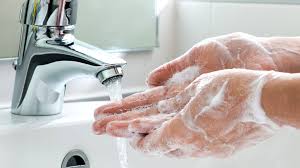
The Importance of Hygiene for Immune Health
Hygiene plays a critical role in maintaining immune health and preventing infectious diseases. Proper hygiene practices reduce the burden on the immune system by minimizing exposure to harmful pathogens, thus promoting overall health and well-being. This article explores the connection between hygiene and immune function, highlighting key practices that support immune health and provide practical advice for maintaining good hygiene.
The immune system is the body’s primary defense against infections, constantly working to identify and eliminate harmful pathogens like bacteria, viruses, and fungi. Maintaining proper hygiene is crucial in supporting the immune system’s function by reducing the number of pathogens the body encounters daily. In this article, we discuss the importance of hygiene for immune health and provide evidence-based practices to help maintain a strong immune system.
How Hygiene Supports Immune Health:
Reducing Pathogen Exposure:
Hygiene practices, such as regular handwashing, proper food handling, and maintaining clean living environments, significantly reduce exposure to harmful pathogens. By minimizing the number of germs that enter the body, these practices reduce the burden on the immune system, allowing it to function more efficiently and focus on more critical tasks.
Preventing Infections and Diseases:
Good hygiene is essential in preventing common infectious diseases, such as colds, flu, and gastrointestinal infections. By preventing these infections, the immune system is not constantly overworked, which helps maintain its strength and responsiveness to more serious threats.
Supporting Skin Health:
The skin is the body’s first line of defense against external pathogens. Proper skin hygiene, including regular bathing and moisturizing, helps maintain the skin’s integrity and prevents infections such as cellulitis and dermatitis, which can compromise the immune system’s ability to protect the body.
Key Hygiene Practices for Immune Health:
Hand Hygiene:
Regular handwashing is one of the most effective ways to prevent the spread of infectious diseases. Hands should be washed thoroughly with soap and water for at least 20 seconds, especially before eating, after using the bathroom, and after coughing or sneezing. When soap and water are not available, an alcohol-based hand sanitizer can be used as an alternative.
Oral Hygiene:
Maintaining oral hygiene is crucial not only for dental health but also for immune health. Brushing teeth twice a day, flossing daily, and using mouthwash can help prevent infections such as gum disease, which has been linked to systemic inflammation and weakened immune function.
Respiratory Hygiene:
Proper respiratory hygiene, such as covering the mouth and nose with a tissue or elbow when coughing or sneezing, helps prevent the spread of airborne pathogens. Wearing masks in crowded or high-risk areas can further reduce the risk of respiratory infections and support immune health.
Food Safety Practices:
Proper food handling and preparation can prevent foodborne illnesses, which can compromise the immune system. This includes washing fruits and vegetables, cooking meat to safe temperatures, and avoiding cross-contamination between raw and cooked foods.
Environmental Hygiene:
Keeping living and working environments clean reduces the number of pathogens present in these areas. Regularly disinfecting frequently touched surfaces, such as doorknobs, light switches, and mobile devices, can help minimize the risk of infections.
Hygiene is a fundamental component of maintaining immune health and preventing infections. By reducing exposure to harmful pathogens, good hygiene practices help support the immune system’s ability to protect the body effectively. Incorporating regular handwashing, proper oral hygiene, respiratory hygiene, food safety, and environmental cleanliness into daily routines can significantly enhance immune function and overall health.